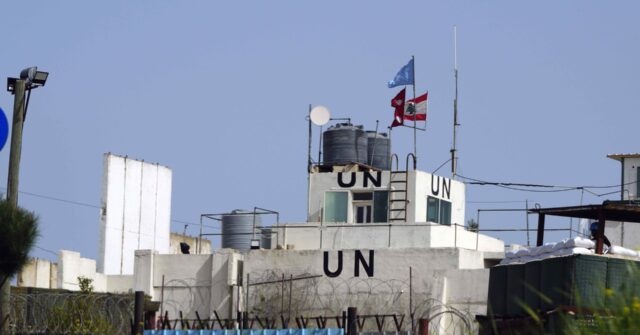Israeli Prime Minister Benjamin Netanyahu’s recent statements highlight his deep concern over the role of United Nations Interim Force in Lebanon (UNIFIL) amidst tensions with Hezbollah. Following incidents involving UNIFIL soldiers being wounded and Lebanese Armed Forces (LAF) soldiers killed, Netanyahu accused UNIFIL of failing in its mandate, which is to enforce United Nations Security Council resolutions that prohibit Hezbollah’s military presence in southern Lebanon. Instead of acting as peacekeepers, UNIFIL troops have, according to Netanyahu, become complicit by serving as “human shields” for Hezbollah operations, thus intensifying the threat Israel faces in the region.
Data supporting Netanyahu’s frustrations include comments from U.S. Secretary of Defense Lloyd Austin, who condemned what he perceived as an Israeli attack on UNIFIL. This criticism from a key ally underscored the international backlash Israel faces, compelling Netanyahu to articulate a more forceful position regarding UNIFIL’s effectiveness. Israeli Defense Minister Yoav Gallant strengthened this narrative, asserting that Hezbollah deliberately utilizes the proximity of UNIFIL to initiate strikes against Israel, putting both UNIFIL and IDF personnel at risk. The challenge posed by Hezbollah’s missile capabilities necessitates that Israel navigate its military actions carefully to avoid escalating tensions and harming UN personnel.
Netanyahu’s call for the withdrawal of UNIFIL from active combat zones reflects a broader strategy to confront what he describes as Iran’s aggression through its proxies, particularly Hezbollah. He characterized the ongoing conflict as a “war of redemption against Iran’s axis of evil,” emphasizing Israel’s determination to neutralize threats and secure its northern borders. His remarks signify a pivotal turn in Israeli military doctrine, suggesting a more aggressive approach in Lebanon, including targeting Hezbollah leadership and infrastructure. By framing the conflict in existential terms, Netanyahu seeks to consolidate both domestic and international support for Israel’s military operations.
In addressing the humanitarian and diplomatic complexities of the situation, Netanyahu urged the UN Secretary General to withdraw peacekeeping forces from areas overtaken by Hezbollah. He emphasized that staying in these danger zones makes UNIFIL personnel vulnerable to becoming “hostages” of Hezbollah. The Israeli government has repeatedly asked for this withdrawal, met with resistance, underscoring a stalemate that exacerbates the security risks for both civilians and military personnel involved in the conflict.
The Israeli Prime Minister also highlighted ongoing military operations in Gaza, where the IDF is conducting operations against Hamas to secure the return of hostages. The situation illustrates an intense focus on reclaiming control from militant groups, indicating a proactive stance from the Israeli government in terms of military strategy. Netanyahu assured citizens that their safety remained a priority and reiterated the government’s commitment to combat terrorism across various theaters, including Judea and Samaria. This aspect of the communication aims to reassure Israelis of their leadership’s resolve amidst what has been described as a complex and multifaceted conflict.
Closing his address, Netanyahu invoked traditional Jewish sentiments, wishing citizens a good year and referring to Yom Kippur traditions, thereby framing his military and diplomatic narrative within a cultural context that resonates deeply with the Israeli public. By linking military necessity with cultural and spiritual themes, Netanyahu aims to unify the nation under a message of resilience during a challenging time, advancing both a tactical military agenda while fostering social cohesion. The combination of decisive military action and cultural engagement indicates multiple layers of strategy as Israel seeks to navigate a volatile regional landscape filled with both immediate threats and long-standing geopolitical challenges.

